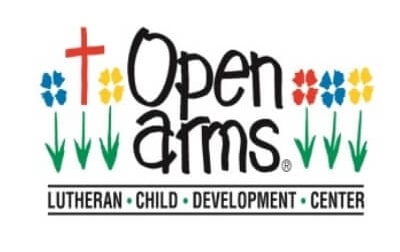
“The Words of Palm Sunday”
Mark 11:1-11
March 24, 2024
Several years ago I went to an outdoor concert with a group of friends where 4 bands were performing. One of the bands, known as Manfred Mann’s Earth Band, had not had a hit song in many years, the original members were no longer playing in the band, but they opened the concert by playing one of their most popular songs known as, “Blinded By The Light.” The song came out in 1976 and I remember listening to it in middle school and high school. But for many years my friends and I could never understand some of the words the band members were singing. Even during the concert, 15 years later, as people sang along with the band, we could tell that many people still did not know the exact words that the band was singing. It really wasn’t until I was able to do a Google search of the song that I learned the opening line was, “Blinded by the light, revved up like a deuce, another runner in the night.” I don’t know what that means, but the website explained that a “deuce” was a two-seater hot rod car and the song was about the invincibility of youth, and the hopeful perspective that anything is possible. Ok, so with that in mind, let’s look at the opening words of the first verse: “Madman, drummers, bummers; Indians in the summer with a teenage diplomat.” I’m sure most of us have no idea what that means, and as you go through the rest of the words to the song they really don’t make any sense or have any clear meaning. But I liked the song and I know many others did too, even though most people, including myself, had no idea what the band was singing or what the song was all about.
So is that the case with the songs we sing here in the church? Do people clearly understand the words we are singing and the meaning of the songs? In our opening song this morning we sang, “Hosanna, Hosanna, You are the God who saves us.” The word, “Hosanna” means, “save us,” and we sang that word as a reminder that on this day people sang or shouted that word to Jesus as entered the city of Jerusalem to save people from their sins by dying on a cross. But is that what the people in Jerusalem had in mind when they sang that same word while waving palm branches, to welcome Jesus as He rode into the city on a donkey? Why would the people ask a man on donkey to save them? What did they see in Him? What did they want Him to do?
Most of the people thought that Jesus was coming to save them from the Roman government. Finally, someone from the line of King David had arrived who they thought would lead a rebellion against the Roman regime that was taxing them into oppression. He comes in the name of the Lord, they thought, to bring things back to the way they were when David was king of Israel in the Old Testament and Israel was a very powerful nation.
But these people did not understand what they were singing or to whom they were cheering that day. The words they shouted and sang fit Jesus, but not in a political way. Jesus was the Lord God, the Promised Messiah of the Old Testament, so the word, “Hosanna,” was very appropriate. And He had come to establish a kingdom, but not a physical one. Jesus had also come to establish peace, but it was a spiritual peace between us and God, a peace that restored our relationship with God. Unfortunately, these people had no idea who Jesus really was or what He was going to do for them.
How do we know that? Just look at how these same people treated Jesus 5 days later. On Sunday they welcomed Him and shouted, “Hosanna,” but by Friday – not seeing any army ready to battle and no demands of the Roman governor, Pontius Pilate, to step aside – they shouted, “Crucify Him,” as they mocked Jesus’ claim to be God and king, and watched Him die on a cross. I wonder what Jesus thought on Palm Sunday as He listened to all these people who were shouting, “Hosanna,” knowing that most of them really did not know Him at all.
What about us? Do we know what we are singing today or are we like those people on the first Palm Sunday? This morning in our opening song we sang, “Hearts are yearning for You, we long for You.” But do we really mean that? Are we really yearning for Jesus? Do our hearts long for Jesus? There are many people who go to church and sing songs, but just like those people from the first Palm Sunday, many people do not understand what they are singing. How can we sing to Jesus, “Hearts are yearning for You, we long for You,” and then leave here and do the sinful things that we do during the week? What does Jesus think when He hears people sing those words, but then rarely sees them in church or taking a stand for Him or reading His Word? Like the people of Jesus’ day, who sang His praises and waved palm branches on Sunday, but by Friday had Him nailed to a cross, many times our Sunday words do not match our Friday words.
John Newton is the writer of one of the most popular church songs of all time: “Amazing Grace.” We sing that song here in our contemporary service, in our traditional service, we sing it during this season of Lent, and we often sing it after a tragedy. It is one of the most well-known songs in the Church, but sometimes when it is used in the church I think many people have no idea what they are singing.
John Newton described his early life as an immoral wretch who mocked Christianity. As a young adult he served in Great Britain’s navy and was known as a heavy drinker, who prided himself in his creative use of profanity, and had no interest in religion. Eventually he became the captain of his own ship, but it was a slave trading ship. However, his mother had exposed him to some Christian instruction when he was a child and she always prayed that someday he would become a minister.
Then one day he was steering his ship on the open sea and got caught up in a terrible storm. He thought for sure that his ship was going down and he was going to die. In desperation, he prayed to God – the God he had been mocking all of his life, and amazingly the ship stayed afloat and he survived. But that moment shook him into learning more about God.
In particular, he learned that Jesus really existed. He really was the Son of God, who came into the world and died on a cross for all of his sins – all of his profanity, all of the mockery, all of his immorality, and all of his drunkenness. John Newton was amazed to learn that Jesus had paid for all of those sins by dying on the cross. That God would forgive him for every sin he had ever committed because of Jesus was truly amazing grace. John Newton learned that even though he was a sinner, he was going to live in heaven someday. Eventually John Newton left the slave trading business and became a minister for the last 43 years of his life.
As you consider the opening words of Amazing Grace, “Amazing Grace, how sweet the sound, that saved a wretch like me,” I’m sure you can see how they describe the life of John Newton; and as we sing the words, “Such love I have never known, I’ve found that the grace that flowed to me, in my unrighteousness,” from our song after this sermon, titled, “There is No Other Name,” I hope you can see yourself in that song, that like John Newton, God’s grace has flowed to you, despite your unrighteousness, and you will confess that we are saved only in Jesus’ name.
“Hosanna” is a great word to sing today, knowing that we are saved only by God’s grace through Jesus’ death on the cross. We also have an opportunity today to respond to His grace with our Courageous Commitment cards. Over the past 6 weeks we have looked at how we can live generously with our time, abilities, witness, prayers, love, and finances. And as we make these commitments to God, we know they won’t be perfect, we know that our Sunday words will not always match our Friday words, but we know that Jesus will still love us and forgives us by His grace. So with our commitment cards let us put our words into actions by bringing our cards forward today and laying them before Jesus, knowing that He will use our commitments, flawed as they may be, to save and bless others.


